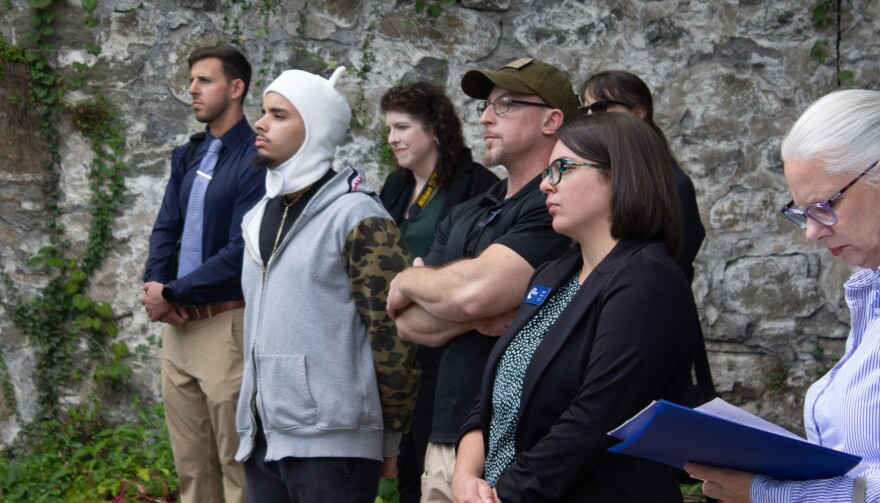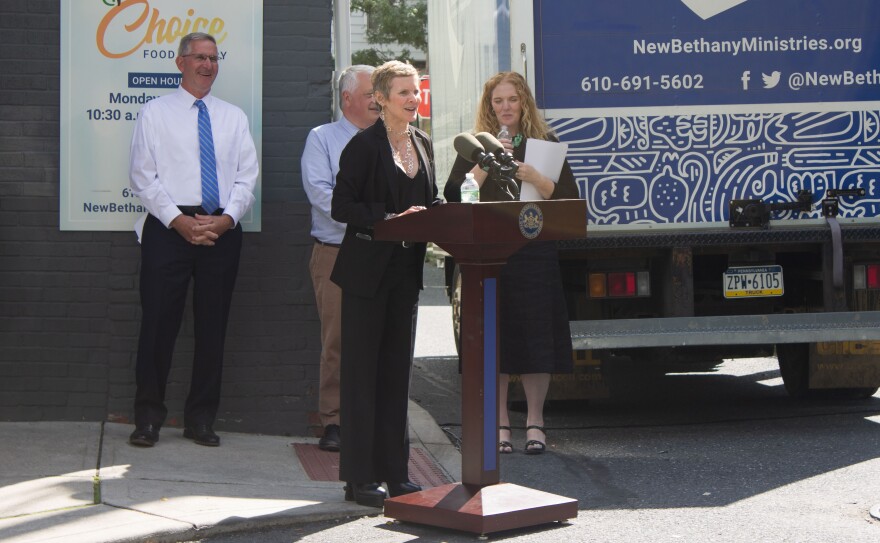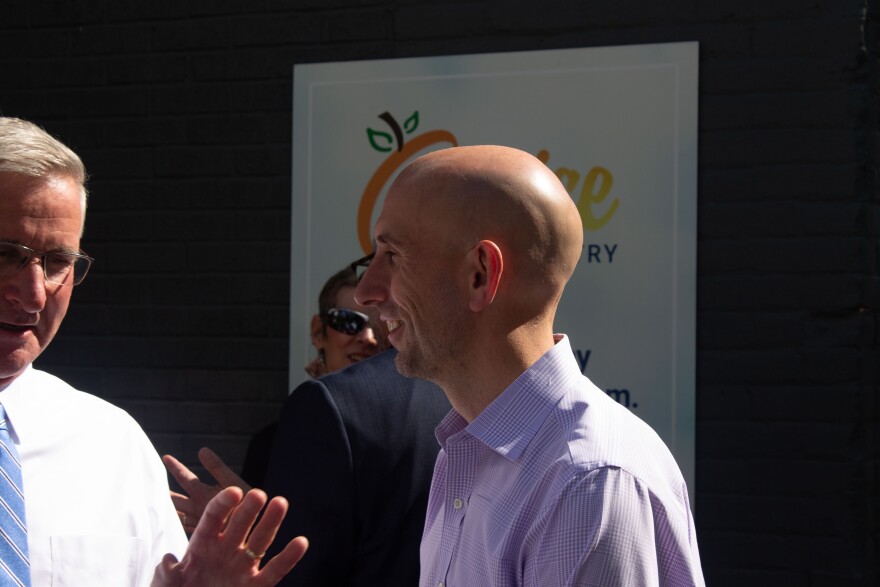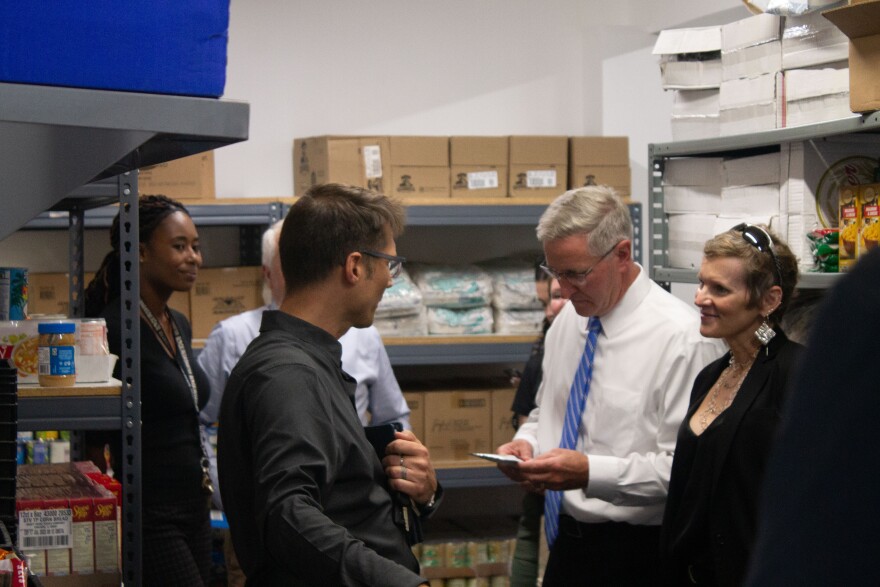- New Bethany, a nonprofit providing emergency food and shelter assistance, said its demand has almost doubled in the past year
- Not only has the demand increased, but its demographics have changed — and now, only 10-15% of its visitors are experiencing homelessness, the organization's director said
- New Bethany is slated to receive $28,610 from a state subsidy to offset increased financial challenges
BETHLEHEM, Pa. — New Bethany said Tuesday that its demand has nearly doubled in the past year — jumping 82% since autumn 2022.
But the nonprofit organization now has more resources to help that larger number in need, thanks to funding from a state program.
New Bethany serves as a food bank, soup kitchen and shelter, mainly for those experiencing homelessness — though Executive Director Marc Rittle said many of its new clients are not homeless.
With the increase in demand, Rittle said it's the most traffic of those in need it's ever seen.

"Just in the last year, we've had to increase our volunteers, increase staff because especially coming out of COVID, it's harder to find volunteers, increase our food supply, and of course increase our infrastructure to able to expand the actual building," Rittle said.
"Really only about 10 to 15 percent of the people that come into our soup kitchens are actually on-the-street homeless."Marc Rittle, Executive Director of New Bethany Ministries
The revelation was a small part of a news conference to announce the government funding.
As part of a $1.6 million statewide spending initiative for food banks, soup kitchens and emergency food access in general, New Bethany will get $28,610 from the state government.

Similarly, Second Harvest Food Bank of the Lehigh Valley and Northeast PA, in East Allen Township, is set to get $40,330 from the same budget.
Demographic changes
Changes in the types of people who go to New Bethany for emergency services are not totally new — but they've escalated dramatically in recent years, officials said.
"So here's what's changed since, even 10 years ago, or I would even say since before the [coronavirus] pandemic, is that we are seeing more people, just more people period, we are seeing people who are not homeless, we are seeing people who are younger," Rittle said.
"We serve a lot of people who [are] fully housed, but just don't have enough money to make ends meet."New Bethany Executive Director Marc Rittle
"So that includes families, but I think it is important to say, like, in our soup kitchen, for example, really only about 10 to 15 percent of the people that come into our soup kitchens are actually on-the-street homeless.
"Like we serve a lot of people who [are] fully housed, but just don't have enough money to make ends meet."
Rittle said he believes the biggest reason for that is a lack of affordable housing, combined with a few other factors.
"Families can no longer afford the cost of living because they don't have the same benefits that they had either during the pandemic or now because of the cost of housing that they had ever in their lives," Rittle said.
"Because it's just more and more families fall into that gap."

"To me, there's always been a gap in between, you know, the rich and the poor. It's a much larger gap now, even in the last 12 months than it's ever been before."
Urgent need for food
Asked how people can help his organization, Rittle said New Bethany has an urgent need for food donations, and the process of donating is quite simple.
"On our website, we have drop-off hours," Rittle said.
"We're open in the morning for people who need groceries. So I would drop off in the afternoon, maybe around 1 or 2. But yeah, five days a week, you can literally just drive it through the food pantry and drop off food."
Rittle said New Bethany is especially interested in non-perishable, healthy, nutritious foods — but accepts fresh vegetables, as well.
The organization also has a need for volunteers, which Rittle attributes to the growing demand because of changing and worsening economic conditions.


